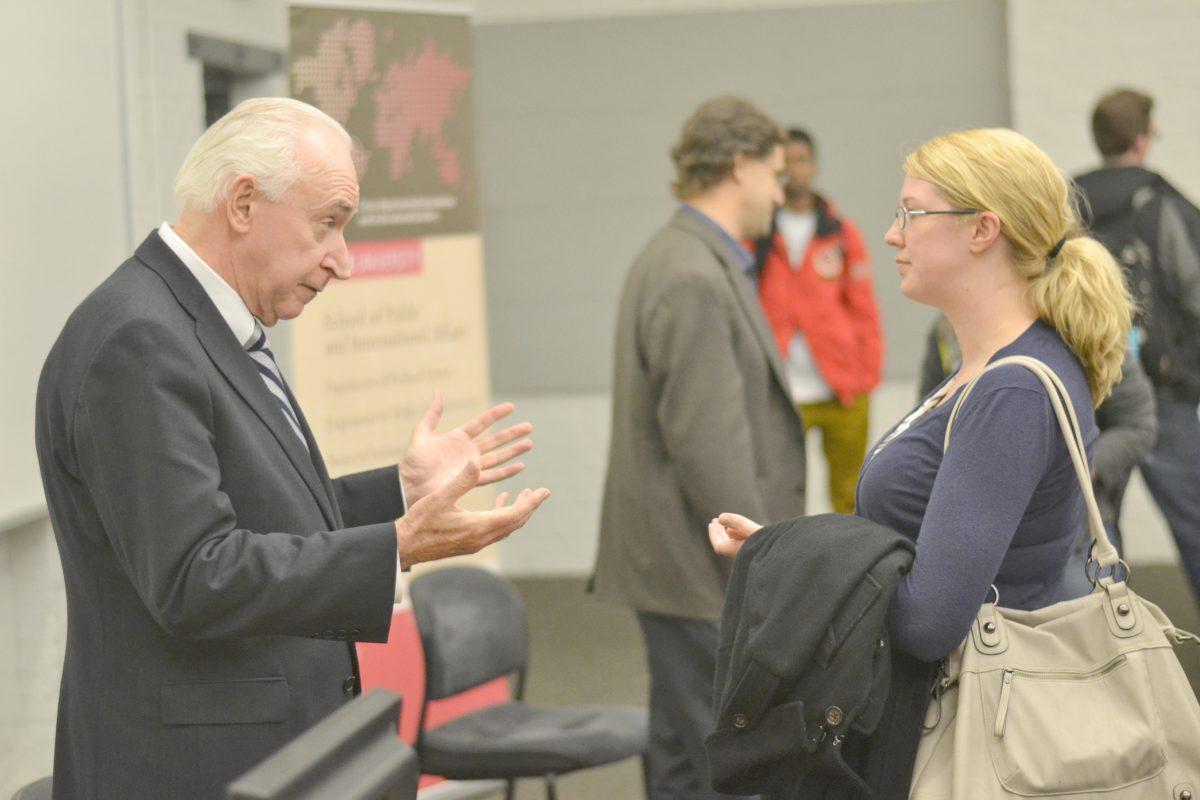Caldwell Hall has become the temporary headquarters for Jim McLay, the New Zealand Ambassador to the United States. The ambassador, who is visiting classes and meeting with professors and graduate students, gave a talk Tuesday night about the International Criminal Court about his experience as New Zealand’s representative to the U.N.
Students in the College of Humanities and Social Sciences, particularly in international studies, will have the opportunity throughout the week to interact with the ambassador. On Monday he ate lunch with students and faculty discussing a broad array of political issues, including New Zealand’s vote in favor of recognizing Palestine as a non-member observer state at the United Nations. New Zealand was the only country among Five Eyes (the United Kingdom, the U.S., Canada, Australia and New Zealand) to approve the resolution, which passed in the U.N. General Assembly with 138 of the 190 votes.
“We have, for a long time, supported a two-state solution — two states living side by side behind secure and defined borders, and we want to see that resolved by peace and negotiation with the Israelis and the Palestinians,” McLay said. “The resolution that was drafted called for two things in moderate language: The execution of the two-state solution and the resumption of negotiations. If you look at the text alone, it was a no-brainer, but we also examined the context, which at the particular time was the conflict with Gaza, and we absolutely respect Israel’s right to exist, but also to resist. But we made this move to give support to moderate and responsible Palestinian voices in Ramallah.”
The ambassador’s experience in international politics extends to his tenure as the deputy prime minister of New Zealand when he served in the country’s parliament, but he is also a member of the U.S. Humane Society’s International Council of Advisers and served as a commissioner on the International Whaling Commission. He will give a talk during a catered lunch today at noon in Caldwell Hall to host another chat on foreign policy.
During McLay’s stay, he has connected with students and faculty interested in globalization, and he calls New Zealand an “exemplar” in terms of global trade.
“We engage with the rest of the world, and we have to,” McLay said. “In New Zealand, we look to adapt instead of resist to the changing climate of international economics. We engage in trade with more countries than any other country in the world, and we’ve benefited greatly.”
Tonight, at 7:30 p.m. in Daniels 434, McLay will discuss New Zealand’s influence in international politics in a talk called “Small State, Big Issues.”
McLay’s diverse experiences enticed the director of the School of Public and International Affairs, Dick Mahoney, to bring the ambassador to campus.
Though New Zealand may not be as big as the U.S., McLay said that on the international stage, especially at the U.N., small countries are growing in influence.
“In this day and age of globalization, the small states are the biggest beneficiaries,” McLay said. “Our influence isn’t just based on size, but how we engage with the rest of the world.”








